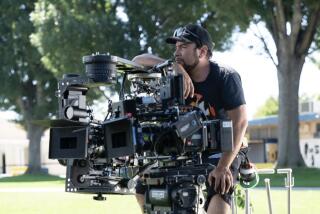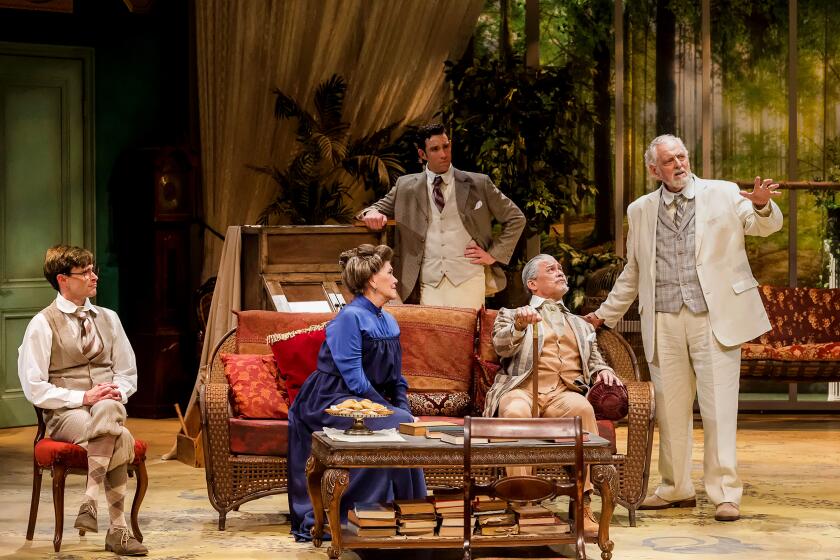Two Students Steal Institute Show
The composers were largely in command Saturday night for the third event in the Henry Mancini Institute’s 1999 Summer Concert Series at Royce Hall. Even so, the program didn’t turn out quite the way one might have anticipated.
The presence of such well-known talent as Jerry Goldsmith, Manny Albam and John Clayton clearly suggested that their works would dominate the performance. But, while there was no denying the effectiveness of their compositions, the performance was virtually stolen by two brief works by student composers: Ceiri Torjussen from Wales and Rachel Steckler from Florida, each conducting their own piece.
Torjussen’s “Momentum,” opening the concert, was a sudden bolt of creative lightning. Cast in mid-20th century modernist style, it used the orchestra as a powerful, sound-generating device, building dissonant layers of sound over disjunct, pounding rhythms. Difficult for any orchestra, it was a piece that made insistent technical demands of the young artists in the Mancini Institute Orchestra. To their credit, they delivered--not just the notes, but also the creative voltage and the emotional intensity of Torjussen’s well-crafted work.
Steckler’s “Podroozh” (which she described as her spelling for a Polish word meaning “journey”) made an extremely effective integration of some jazz-like solo elements--featuring trumpet playing by Fred Friedler and soprano saxophone from Alex Aviles--and a lush orchestral sound. Steckler revealed a nice feel for melody and the right sense of how to bring cohesion and continuity to an otherwise programmatic piece of music.
Albam’s “Elegy” was a pleasantly light work, notable primarily for the solo contributions from saxophonists Aviles on soprano, Luke Batson on tenor, and Megan Kent on baritone.
Clayton’s “3 Shades of Blue” was considerably more substantial, a piece that deserves a wider hearing. But its impact was diluted by featured soloist Ernie Watts on tenor saxophone, who treated virtually every passage as an invitation to play remarkably virtuosic, but ultimately wearing flurries of notes.
Pianist / composer Lincoln Mayorga’s “Angel’s Flight” had the distinct flavor of film music. As, of course, did Goldsmith’s renderings of suites from his music for “Twilight Zone” and “First Knight.”
But the real stars of the evening, in addition to the two young composers, were the members of the Mancini Institute Orchestra, efficiently performing a diverse collection of pieces, and coming together, after only two weeks, into an impressive musical unit.
More to Read
The biggest entertainment stories
Get our big stories about Hollywood, film, television, music, arts, culture and more right in your inbox as soon as they publish.
You may occasionally receive promotional content from the Los Angeles Times.






